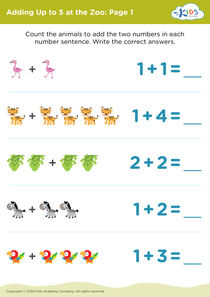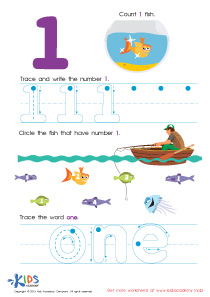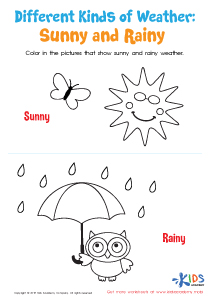Word Relationships and Nuances Quizzes for Ages 4-6
7 results
7 filtered results
Clear all filters7 filtered results
-
From - To
Explore the World of Words: Word Relationships and Nuances for Ages 4-6
Dive into our interactive assessment quizzes designed specifically for young learners aged 4-6! These engaging quizzes are crafted to explore the intriguing world of word relationships and nuances, offering a dynamic way for children to enhance their understanding of language. Each quiz provides immediate feedback, fostering a supportive and enriching learning environment. With vibrant illustrations and kid-friendly prompts, our quizzes make learning about word relationships and nuances both fun and educational. Perfect for curious young minds, these quizzes are the stepping stones to linguistic mastery for the next generation of wordsmiths.
In the wondrous journey of learning, the formative years of a child’s education are utterly pivotal. As we navigate through the seas of educational content designed to enrich young minds, the importance of understanding word relationships and nuances cannot be overstated. Specifically tailored for children aged 4-6, our interactive quizzes on Word Relationships and Nuances serve as a delightful and insightful gateway to mastering the complexities of language at an early age.
Language, in its essence, is a mosaic of words, each holding its unique shade of meaning and relation to another. For children in the tender ages of 4 to 6, grasping these subtle distinctions and connections can be both a challenge and an adventure. This is precisely where our interactive quizzes come into play, offering an engaging and supportive platform for young learners to explore and understand the intricate world of word relationships and nuances.
The quizzes are meticulously designed with the cognitive and linguistic development stages of young children in mind. At such a pivotal age, children are naturally curious and eager to learn; however, their attention spans require that learning be both stimulating and bite-sized. Hence, our quizzes are crafted to be vividly colorful, interactive, and replete with examples that are relatable to the daily experiences of a child in the 4-6 age group. This approach not only captures their attention but also enhances retention, ensuring that the lessons learned are not fleeting but leave a lasting impact.
Delving into the content, the quizzes cover a broad spectrum of word relationships and nuances. From understanding synonyms and antonyms to grasitating the subtle differences between words that appear similar but have distinct meanings, the quizzes are a treasure trove of linguistic exploration. For example, a quiz might present a scenario where a child has to identify the relationship between the words "big" and "large" or discern the nuanced difference between "happy" and "joyful". Such exercises are invaluable, as they lay the foundational stones for advanced language skills, critical thinking, and nuanced comprehension.
Moreover, the interactive nature of the quizzes means that learning is not a passive experience. Children are encouraged to actively engage with the material through selection, association, and even creation, turning the learning process into an interactive game. This active engagement is critical in reinforcing learning and making the experience enjoyable and memorable.
Furthermore, our quizzes are not just about individual learning; they foster an environment of shared discovery when parents and educators join in. This collaborative approach not only strengthens the learning outcomes but also provides an opportunity for bonding and mutual enjoyment. Seeing a child’s eyes light up as they make a connection or understand a nuance for the first time is an unparalleled joy.
In conclusion, our interactive quizzes on Word Relationships and Nuances for Ages 4-6 are more than just educational tools; they are pathways to linguistic mastery, critical thinking, and a lifelong love for learning. By engaging young minds at a crucial developmental stage, we are not just teaching them about words; we are opening doors to worlds of imagination, understanding, and expression.











